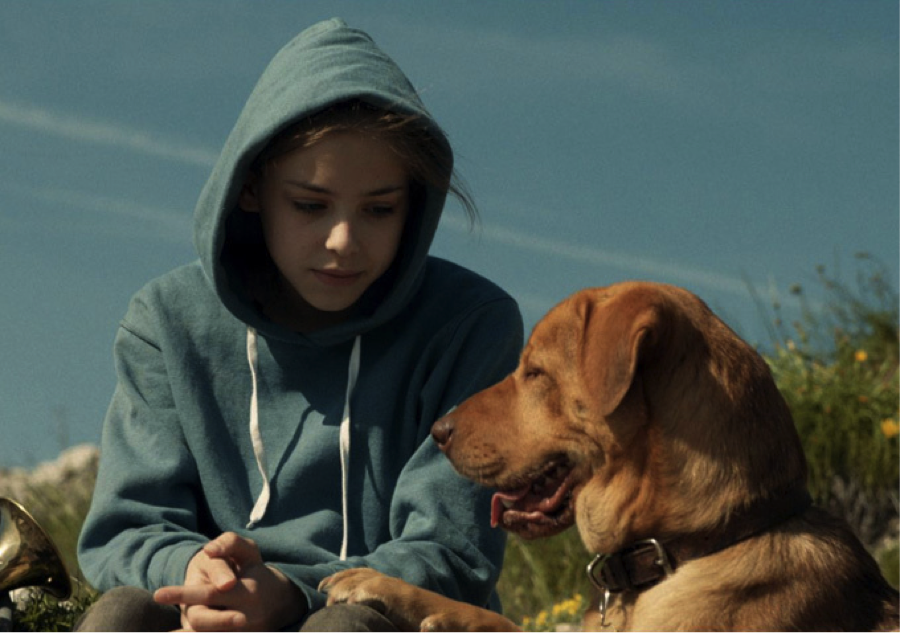Cannes 2014: Award-winning film “saved” by intelligent file sharing software
Hidden alongside the dazzling display of stars and their awards, a lesser-known selection of films vie for a different sort of honor at Cannes: the Prize of Un Certain Regard (French translation: “a particular outlook”). Since 1978, the Un Certain Regard selection has showcased the original and unique work of young artists seeking international recognition. But this year’s winner had to deal with an unexpected off-screen adventure in the final days before the festival, a drama that came close to costing them their debut and the opportunity to share their remarkable film with the world.
The Cannes International Film festival has a long history of encouraging creativity, innovation, and collaboration among filmmakers around the globe. Jean Cocteau once said of Cannes that, “The Festival is an apolitical no-man’s-land, a microcosm of what the world would be like if people could make direct contact with one another and speak the same language.” To pull off such a show has always required enormous preparation and technical assistance. Today, that means juggling a storm of large digital files moving between various production and post-production points across the globe.
Such was the whirlwind Hungarian director Kornel Mundruczon and his team were battling just a few days before the screening of White God, when they realized there was a problem in the DCP or Digital Cinema Package (the file type for big screen movies) and that the titles at the start of the film weren’t showing up correctly. A Hungarian-Swiss-German coproduction, the enormous film file needed corrections made by various people around the world, and fast. Luckily, their post-production house Post Office Films owned Media Shuttle, a hybrid SaaS file sharing platform made especially for media production — and situations like these. It allowed the team to quickly and securely send their large movie file as a single unit, multiple times, between multiple locations. Media Shuttle “saved their lives,” Post Office Film’s David Jancso said, “They had an enormous amount of material that would have been impossible with regular platforms or FTP.” In the end, White God made the deadline and took home the top award in its intriguing category, which included a grant to support the film’s distribution in France. It was such a success that only a few days later the rights to North American distribution were already sold to Magnolia Pictures.
 From various reviews circulating around the web, White God seems like a cutting and moving reminder of the dangers of class dominance. The fable blends a dramatic exploitation and revenge saga with the depth of a loyal bond between a young girl and her dog. Apparently, the dog is the real hero, along with his large posse of spirited, revolting mongrels. Following the screening, Kornel Mundruczo said to a Times reporter that the film is a response to “the extreme right” in Hungary and their effort to pass a heavy tax on mixed breed dogs, a lesser on pedigrees, and none for Hungarian pedigrees. Most of the dog actors were found in Hungarian pounds and trained for six months to play their impressive roles. It sounds like a wonderfully heart-wrenching film that not only has an emotionally robust message, but also demonstrates some amazing animal acting and technical mastery.
From various reviews circulating around the web, White God seems like a cutting and moving reminder of the dangers of class dominance. The fable blends a dramatic exploitation and revenge saga with the depth of a loyal bond between a young girl and her dog. Apparently, the dog is the real hero, along with his large posse of spirited, revolting mongrels. Following the screening, Kornel Mundruczo said to a Times reporter that the film is a response to “the extreme right” in Hungary and their effort to pass a heavy tax on mixed breed dogs, a lesser on pedigrees, and none for Hungarian pedigrees. Most of the dog actors were found in Hungarian pounds and trained for six months to play their impressive roles. It sounds like a wonderfully heart-wrenching film that not only has an emotionally robust message, but also demonstrates some amazing animal acting and technical mastery.
Of course, we can read all the reviews we want, but no matter how vividly they are written nothing will replace seeing White God for ourselves. Thanks to a ton of hard work by White God’s creators with a little help from intelligent software, we’re all likely to have that chance.



